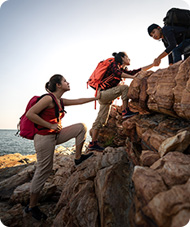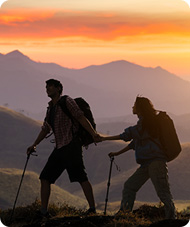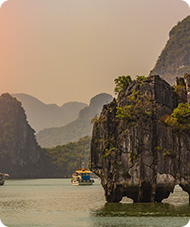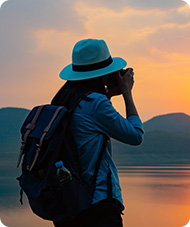Tours
Discover your next great adventure

The Art of Slow Travel: Embracing the Journey Over the Destination
In an increasingly fast-paced world, slow travel has emerged as a way to savor the journey rather than rushing from one attraction to the next. Slow travel emphasizes spending extended time in one location, fully immersing in the culture, nature, and daily life. This form of travel encourages visitors to engage with locals, explore off-the-beaten-path areas, and truly absorb the rhythms of a place. Instead of seeing the world through the lens of a checklist, slow travelers find joy in ordinary moments, whether it’s sipping coffee at a local café, browsing a neighborhood market, or learning a few words of the local language.

Wildlife Adventures: Ethical Encounters with Nature’s Giants
Wildlife tourism offers some of the most breathtaking travel experiences, where encounters with animals in their natural habitats inspire awe and respect. However, ethical considerations are essential to ensure that these encounters benefit both wildlife and ecosystems. Ethical wildlife adventures emphasize conservation, prioritize animal welfare, and often support local communities in preserving biodiversity. Responsible wildlife tourism may include safaris, marine life encounters, or rainforest tours guided by conservation experts who provide insights into the behaviors and habitats of these animals.

Culinary Travel: Exploring the World Through Food
Food has the power to connect people, telling the stories of cultures, traditions, and landscapes. Culinary travel goes beyond simply eating at new restaurants; it’s an immersive exploration into the flavors, techniques, and ingredients that define a region. Culinary travelers often seek out local markets, street vendors, and cooking classes to learn about the history and techniques behind the dishes they enjoy. From fragrant spices to unique cooking methods, each dish offers insight into the region’s climate, geography, and heritage.

Eco-Tourism: Sustainable Exploration of Our Planet’s Wonders
Eco-tourism is growing in popularity as travelers seek ways to explore the natural world while minimizing their environmental impact. This travel approach emphasizes responsible travel to pristine natural areas, focusing on conservation, education, and cultural sensitivity. Eco-tourism invites travelers to experience forests, mountains, deserts, and coastlines while understanding the importance of preserving these ecosystems. It encourages sustainable practices, such as staying in eco-friendly lodges, reducing waste, and respecting local customs.

Adventure Travel: Pushing Boundaries and Embracing the Wild
Adventure travel is for those who crave thrilling experiences and a chance to test their limits. From mountain climbing to diving in vibrant coral reefs, adventure tourism offers countless ways to explore the world’s wildest places. This type of travel often includes physical challenges, whether trekking through dense forests, rafting on wild rivers, or paragliding off cliffs. For adventurers, each destination presents new challenges, as well as opportunities to overcome fears and embrace the thrill of discovery.

Wellness Travel: Recharging the Body and Soul
Wellness travel has become a popular trend, focusing on rejuvenating both body and mind. This form of travel often includes spa retreats, meditation sessions, yoga workshops, and holistic treatments in serene natural settings. Wellness travel allows individuals to disconnect from daily stresses and reconnect with themselves through practices that promote health, balance, and mindfulness.

Cultural Immersion: Discovering Authentic Experiences Around the World
Cultural immersion is about experiencing life as locals do, engaging with the daily rhythms, traditions, and values of a community. This type of travel encourages visitors to step outside their comfort zones and gain a deeper understanding of different ways of life. It often includes staying with local families, participating in cultural festivals, learning traditional crafts, or taking language lessons, providing an intimate view into the local culture.

Digital Detox Travel: Unplugging for a Deeper Connection with Nature and Self
Digital detox travel has become increasingly popular as travelers seek a break from constant connectivity. In a world dominated by screens, emails, and social media, digital detox travel allows individuals to disconnect from technology and reconnect with the natural world, themselves, and their surroundings. It often involves visiting remote locations with limited internet access, where travelers can immerse themselves in activities like hiking, stargazing, or simply enjoying the peace of nature.
